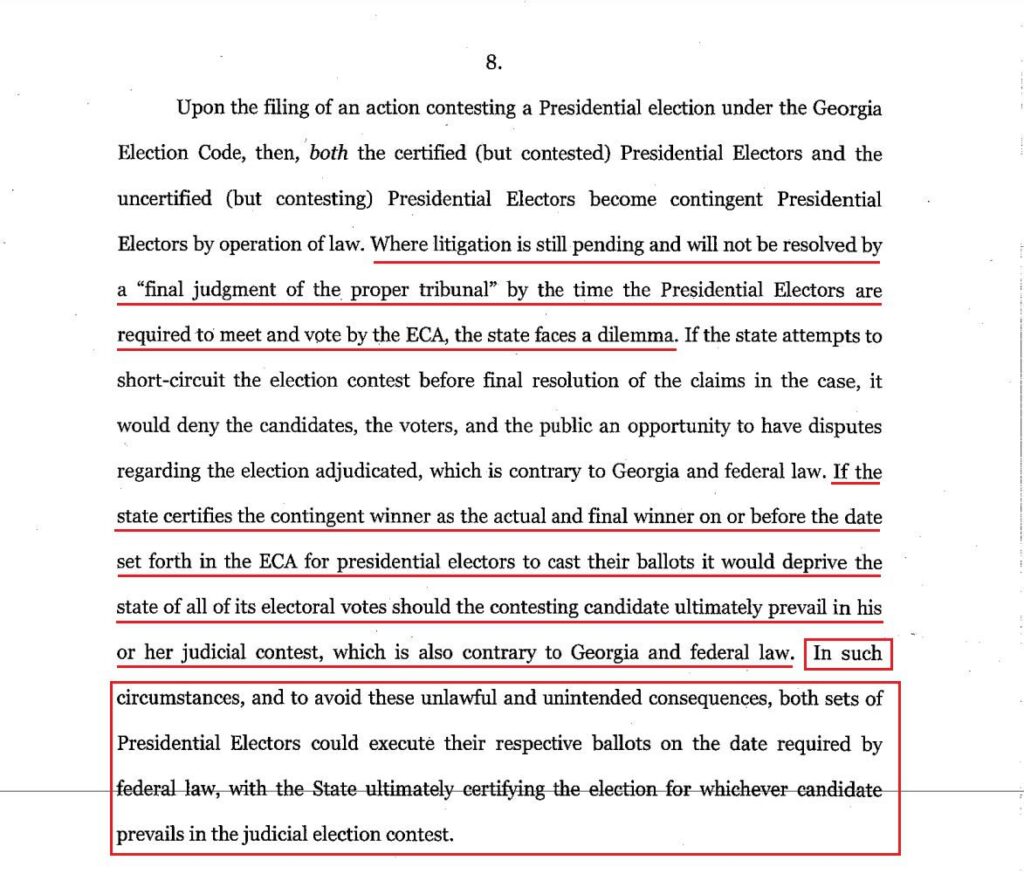The Collins English Dictionary defines lawfare as “the strategic use of legal proceedings to intimidate or hinder an opponent.”
In the United States, we have seen glaring examples of such a practice in the last several years. For example, President Donald Trump was found “liable” for sexual abuse from a decades-old accusation in which no specific date was provided of the alleged “abuse”. How does one defend himself of such an accusation when they cannot potentially provide an alibi as to their whereabouts on that particular day, especially someone who’s schedule is as detailed and documented, both internally and via the Press, as Donald Trump’s? Lawfare.
(It’s worth noting in the above case that under New York State law, the claims against President Trump would have been well beyond the statute of limitations, however, the New York State legislature passed a one-year “lookback” window to bring legal claims with the Adult Survivors Act. Lawfare.)
There’s also a Southern District of New York criminal case brought against President Trump in which “a novel legal theory untested anywhere in the country and one that federal authorities declined to pursue” is being used to prosecute the President over alleged “hush” payments made to former porn-star Stormy Daniels. As stated by Jonathan Turley, the Manhattan DA, Alvin Bragg, isn’t just “outside his lane, but in this case, he’s on a completely different highway.” Bragg charged President Trump with falsifying business records, which is a misdemeanor and therefore beyond the statute of limitations in NY. However, Bragg has claimed they were in the commission of an (undisclosed) felony, thus nullifying the statute of limitations and escalating the charges themselves to felonies. Lawfare.
On July 18th, Michigan Attorney General Dana Nessel charged 16 Republican electors with forgery, election fraud, and conspiracy charges regarding their submission of alternate elector certificates in the 2020 Election. The Gateway Pundit covered the indictments, as well as the pushback from the Michigan State House Elections Vice Chair, who called the charges “political prosecution” and called Nessel a “threat to the rule of law.”
The Impending Case in Georgia (and other States)
It is anticipated that the 16 Republican Electors in Georgia, and President Trump, will also face indictments for submitting an alternate slate of electors, despite, at the time, existing contestation and litigation. The Fulton County District Attorney, Fani Willis, has previously used the lingering indictment of President Trump to fundraise and garner Twitter followers.
But legal precedent shows not only did the alternate electors not violate law, they actually took proper Constitutional action in submitting their certificates amidst a contested election, according to the Judge’s ruling in the 1960 Hawaii election dispute between John F. Kennedy and Richard Nixon.
Politico:
In an article published in February 2022 by Politico titled “See the 1960 Electoral College Certificates That the False Trump Electors Say Justify Their Gambit”, author Kyle Cheney, under the misleading sub-heading “Why Hawaii 1960 isn’t the same as Trump 2020“, he admits:
“Although the three Democratic electors in Hawaii took the same action — signing false certificates — it does not appear they ever faced similar scrutiny, in part because of what happened next. Namely, that Hawaii’s recount ultimately did reverse the state’s election outcome.“
According to Cheney, the only distinction between Hawaii 1960 and Trump 2020 is that Hawaii ended up reversing the outcome and honoring the alternate electors. It is beyond baffling how that is a meaningful procedural distinction since that decision wasn’t made until well after the Electoral Count Act required the certificates to be submitted. I guess the precedent for that logic in the United States is the American Revolution, where Washington et al. would have been deemed “traitors” if they hadn’t, fortunately, won. Perhaps the foundation of whether something is permissible or not is outcome determinative now.
Cheney also writes, ironically:
One crucial feature of the 1960 episode is that a state court weighed in on Jan. 4, 1961, two days before Nixon (then vice-president) oversaw the electoral vote count.
In that case, Judge Ronald Jamieson agreed that the certified Kennedy electors were legitimate. But, more significantly, Jamieson said it was important that those electors met and gathered on Dec. 19, 1960, as prescribed by the Electoral Count Act.
Rather than suggest the Democratic electors committed fraud, the judge pointed to their meeting as a key step that preserved their ability to be counted after the recount showed Kennedy had actually won the state.
CNN:
Much like Democrats who were avidly against voting machines prior to 2020 before flipping in favor of them, on Nov. 4, 2020, Lawrence Lessig and Van Jones wrote for CNN:
The key – and this is the critical fact for 2020 as well – is that the Democratic slate had also met on December 19 [1960], and had also cast their ballots in the manner specified by the Constitution. When they voted, no one knew whether their votes would matter. But at least someone recognized that the only way their votes could matter was if they were cast on the day that Congress had set.
But now, a rogue District Attorney in Fulton County is ready to put private citizens through legal hell that will cost them hundreds of thousands of dollars or more in legal fees and could potentially land them in jail under some mysterious precedent that even the admitted-Marxist Van Jones doesn’t know about.
Perhaps Jones and Lessig should be charged with “conspiracy [for whatever crime DA Willis makes up]”? (sarcasm)
Lawfare.
Expert Witness Declaration:
Todd Zywicki, the George Mason Foundation Professor of Law at the Antonin Scalia Law School at George Mason University, submitted a declaration regarding the actions taken by the Georgia electors specifically, but applicable in many ways to all of the alternate electors. In his declaration, he states:



Lawfare.
Zywicki Declaration by CannCon on Scribd


